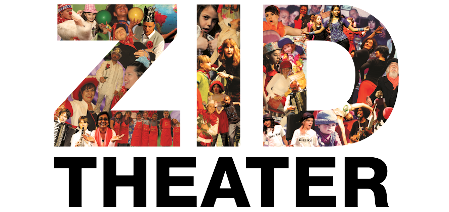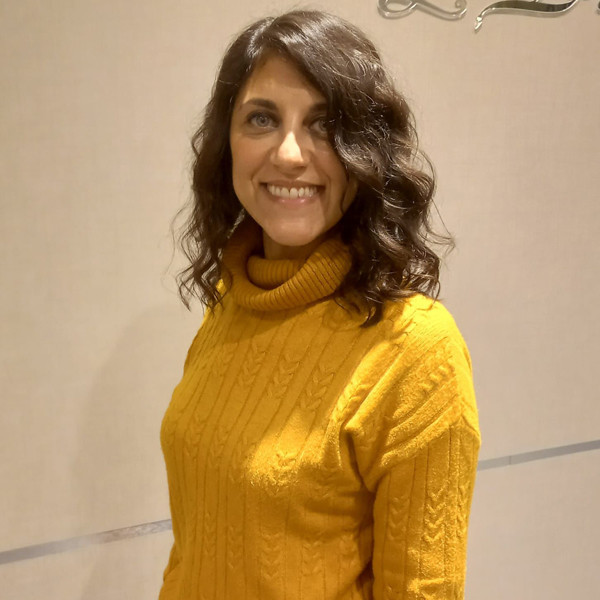‘’Our theater is changing the lives of migrants and that is amazing’’
Tatjana Lisjak
One of the premieres on the program of this year’s ExploreZ festival is Crossing Dreams, a performance created as part of the European project FATE by choreographer Juana Casado and eleven performers with a refugee history, who live in Spain. It was produced by the International Center for Scenic Research (TNT) in Seville, which is known for its International Laboratory for the training of actors and collaboration with the world-famous Atalaya Theater. They have been around for 35 years and have visited more than 600 cities and 40 countries. We talked about their accomplishments with Francesca Lupo, TNT production coordinator who is one of the guests at the festival in Amsterdam.
TNT/Atalaya is the first theater center to receive the National Theater Prize outside of Barcelona and Madrid in Spain. How does this synergy of a theater, a production company, and a Laboratory work?
In 2008, when the Laboratory was opened, we received a National Theater Prize for an innovative experience and innovative theatrical proposal with a training center. Since then, we have followed this philosophy of combining a laboratory within the theater. This year marks the 25th anniversary of training new actors for the Atalaya company through our Laboratory. For us, it is a way to refresh the crew with the students from the Laboratory. I work as a production coordinator. Considering the show and performances we are proposing and creating, it is also innovative. Great importance is attached to research within the theater, as well to the new companies outside the state theater.
TNT’s performance Crossing Dream is a combination of capoeira, dance, and circus. It was created by choreographer Juana Casado and includes 11 performers with a migrant or refugee background who now live in Spain. Is this their first time on stage?
TNT has a great interest in social and community theater. So far, we have participated in six European projects. We hope to have the opportunity to lead one of the European projects next year. FATE is the last European project where we have teamed up with international partners including ZID Theater. It started last year with a six-month training of 20 participants who were all refugees and immigrants from 12 different countries. Since most of them had no previous experience in performing, they attended training and art courses in capoeira, African dance, contemporary dance, voice training, and interpretation. It provided them an alternative to working in bars or real estate and gave them a chance to open up to artistic life. The reactions were great, they loved it! Part of that core group continued this formation. Together with the choreographer and playwright Juana Casado they created this performance based on their life experiences and stories. So they perform their actual testimonies which, to be honest, is very emotional for them.
Their experiences are extremely difficult. Can you say that this process had a transformative effect on them?
In the beginning, it was hard on them, especially since they didn’t speak Spanish very well. But now, after almost two years of work, they have improved a lot and also learned Spanish. The process was not easy for them. They left their countries and families because of the war, either to find a better place to live and provide money for their families or to flee a regime that did not accept their sexual condition. Sharing all these difficult stories was a kind of catharsis for them. They finally found a place to open up and tell everyone, okay, this is my story, I accept it and now I am here to improve my life, improve my family life and follow my dreams. That’s why we called it Crossing Dreams. Now the group is almost like a family. They have changed a lot, from an artistic to a personal, professional point of view. To reach this evolution after a lot of work is amazing for them.
You are one of the partners of the ZID theater in the FATE project. How did you get involved and what experiences did you gain?
ZID Theater and Atalaya have been connected for a long time. Juana Casado came to Amsterdam five years ago to do a flamenco workshop with a collective of women. From the experience of that workshop, she created a performance that she still performs throughout Spain. Both theaters, are connected by the ODIN Theater and their previous joint project Caravan Next. Over the years we have gained a lot of experience from them and our other partners, including LIPA from Liverpool, and we are now ready to propose a new project as a leader. We also learned a lot from our participants and had the opportunity to witness differences in the leadership of our partners. Each partner and state has its way or style that can be quite the opposite. For us, it is always a reference and an opportunity to learn.
How hard was this process of recruiting immigrants or refugees in Spain?
It is a very complicated process to contact and keep them because many of them are forced to relocate due to job searches. We had a big problem this year after losing five members of our core training group. We needed to find more people to perform, and at that point, it was not possible to find participants of migrant origin. Therefore, we decided to include three participants from our laboratory. As it turned out, that integration with the actors was a good solution. They formed a very special group with incredible energy and synergy. The process of sharing their experiences was so nutritious for everyone involved. After two years of working with actors in the lab, our attendees gained confidence. The actors helped them open up and made them try. It is a pleasure to see the effect of this collaboration.
In your experience, does this collaboration of your theater with migrants encourage others to be more tolerant and open to immigrant employment?
One of the goals was to integrate migrants and refugees into cultural life, structure, and institutions. I have to be honest, it was challenging. There are a lot of prejudices in Spain. Internships or training opportunities for immigrants are still limited. After we invited representatives of institutions to our theater and showed them what we do, it is slowly getting better. I am happy to say that some of our performers are now employed in the cultural sector. One works at a table at the conservatory, the other has an internship as a master of lighting, and the third has gone on to study art. Encouraging and changing lives and giving them a different perspective is amazing.


